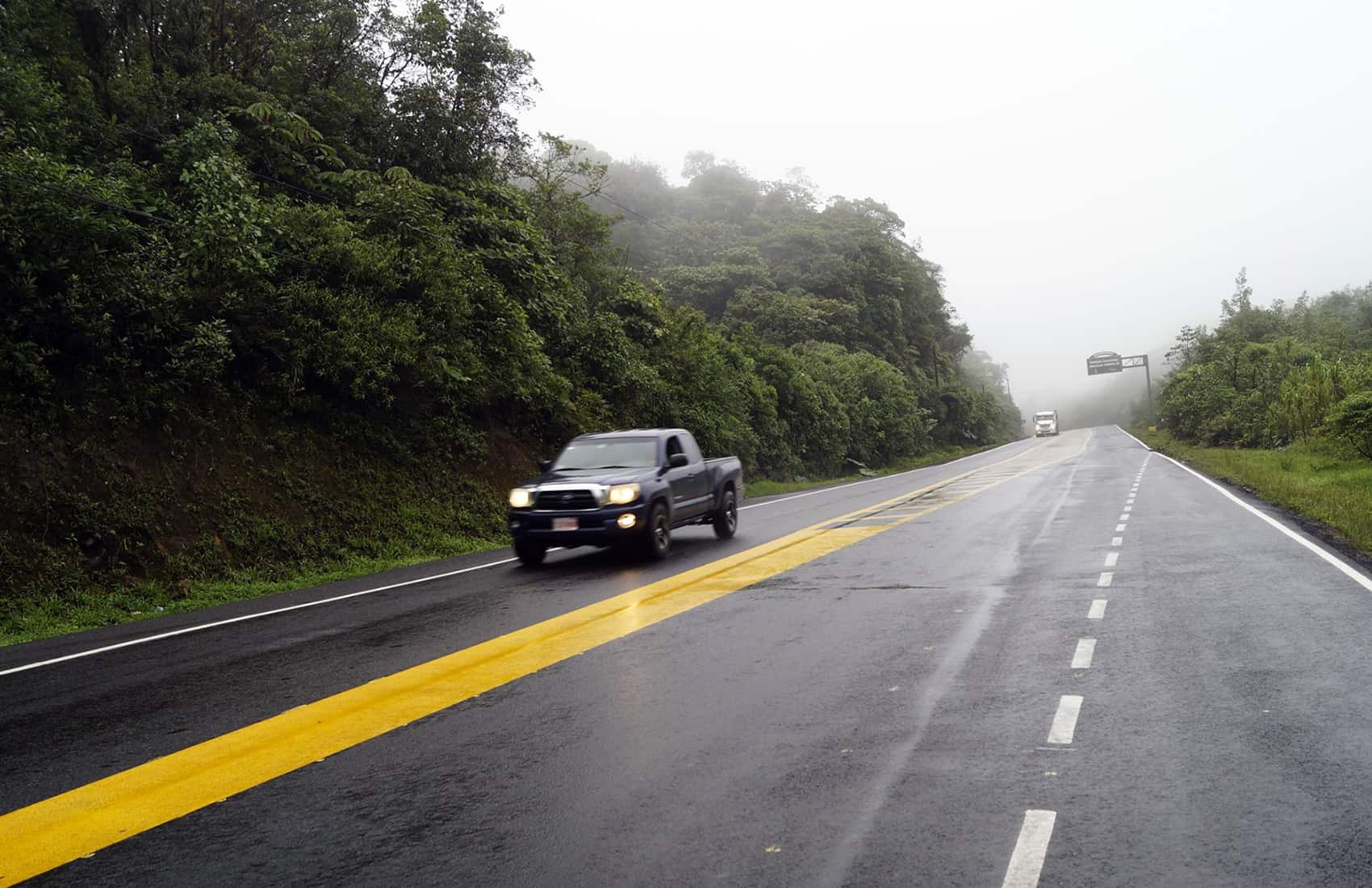The expansion from two to four lanes of a 107-kilometer stretch of Route 32, the main road to the Caribbean region, is finally moving forward after the Comptroller General’s Office approved the project’s contract.
The Public Works and Transport Ministry (MOPT) in October submitted the contract for review and the Comptroller’s office on Tuesday issued its approval to the $495 million contract signed between MOPT’s National Roadway Council and China Harbour Engineering Company (CHEC).
The Chinese government will fund $395 million and Costa Rica will add $100.5 million.
The approved contract stipulates that CHEC will be responsible for both the design and the construction stages of the expansion.
Costa Rica will be in charge of outlining all supervising mechanisms for the project estimated to last 42 months, eight for design and 34 for construction.
The new stretch of highway also includes the construction of 26 kilometers of bike paths, 26 kilometers of secondary routes and five intersections at Río Frío, Guápiles, Siquirres, and two connecting to the Moín cargo dock.
It also includes the expansion and reinforcing of the route’s 36 bridges, the construction of 13 overpasses, 11 exits and 176 bus bays.
A long road
President Luis Guillermo Solís said the Comptroller’s office approval is great news for the country as it puts and end to a long and complex process. He said is also a response to those who are criticizing his administration for not showing significant progress on public infrastructure projects.
“We’re putting a lot of effort into these public infrastructure projects and trying to finish them on time, so that people regain faith that Costa Rica isn’t stagnant,” Solís said.
The approval of the contract with CHEC had to overcome several obstacles, most of them at the Legislative Assembly.
Various lawmakers who opposed the contract in 2013 objected to the Chinese company and raised concerns from news reports about problems with CHEC contracts in Bangladesh, Jamaica, Philippines, Grand Cayman and Guyana.
Lawmakers also critized the contractor’s delay in setting the final cost of the project and several requests to change the original plans.
The Legislative Assembly finally approved the bill authorizing the contract in February 2015, following several street demonstrations from residents of Limón province, truck drivers and business chambers.
The expansion of Route 32 is a long-awaited project, mainly by the business sector, as currently some 80 percent of Costa Rica’s exports leave the country via Caribbean docks.
According to MOPT, an average of 14,000 vehicles transit the route everyday, many of them cargo trucks carrying export and import products, but also a large number of tourists.






